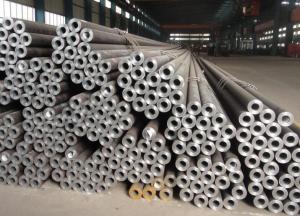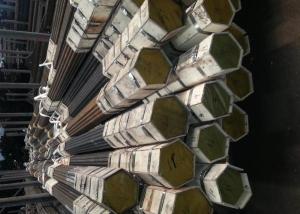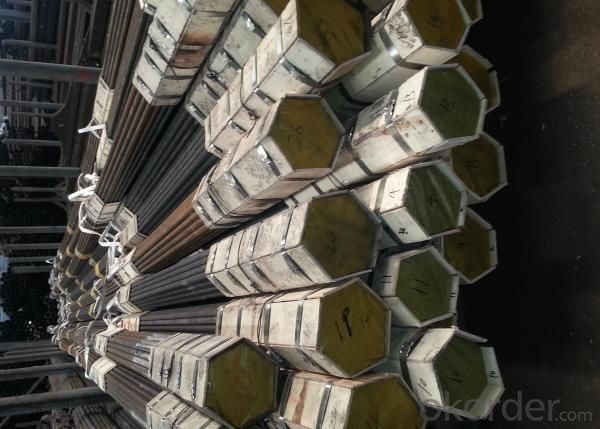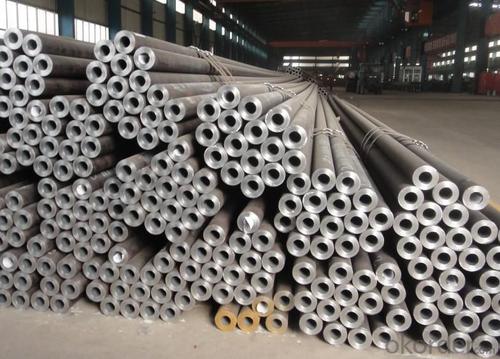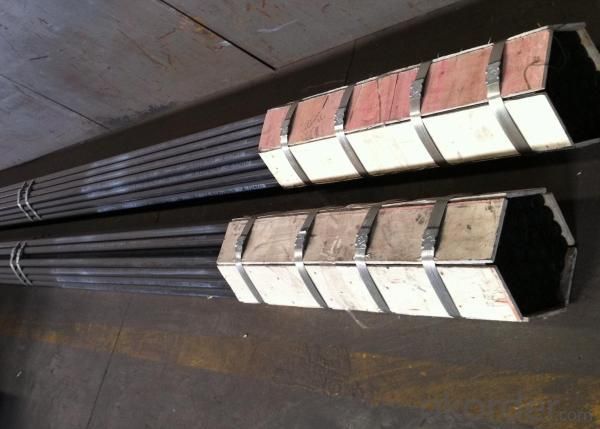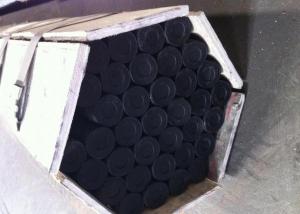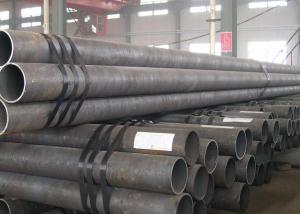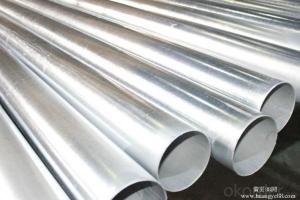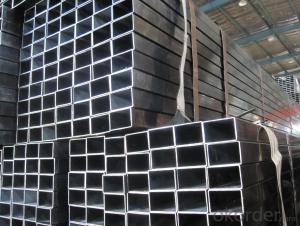JIS G3456(Carbon Steel Pipes For High Temperature Service)
- Loading Port:
- China Main Port
- Payment Terms:
- TT or LC
- Min Order Qty:
- 20M.T. m.t.
- Supply Capability:
- 5000 Tons Per Month m.t./month
OKorder Service Pledge
OKorder Financial Service
You Might Also Like
Specifications of JIS G3456(Carbon Steel Pipes For High Temperature Service)
Standard: JIS G3456
Grade: STS 38, STS 42, STS 49.
OD: 10.5-660.4 mm.
Thickness: 1.7-64.2mm
Length:39.34'/12M.max...
Standard: JIS G3456
Usage/Applications of JIS G3456(Carbon Steel Pipes For High Temperature Service)
1. Low and middle pressure fluid transportation pipeline
2. Casing Tube
3. Boiler Pipe
4. Petroleunm and natural gas industry
5. Chemistry industry
6. Electric industry
Packaging and Delivery of JIS G3456(Carbon Steel Pipes For High Temperature Service)
Wrapped in bundles with steel strips or according to customers' requirements.
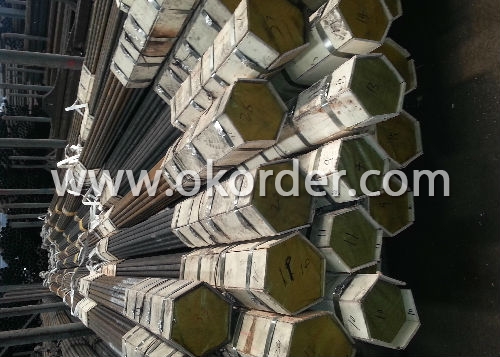
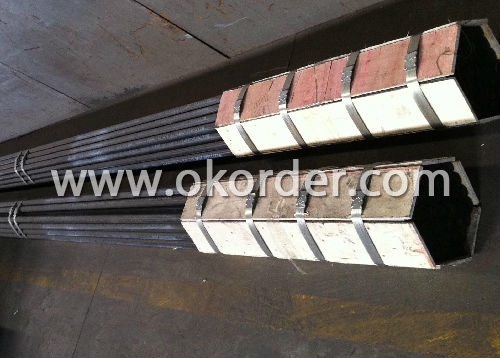
- Q: What are the quality control measures for steel pipe production?
- Quality control measures for steel pipe production typically include the inspection of raw materials, monitoring of manufacturing processes, and testing of finished products. These measures ensure that the steel pipes meet the required specifications and standards. Additionally, quality control may involve conducting visual inspections, dimensional checks, non-destructive testing, and mechanical testing to ensure the strength, durability, and overall quality of the pipes.
- Q: How are steel pipes handled and transported safely?
- Steel pipes are handled and transported safely by following certain procedures. They are usually lifted and moved using cranes or forklifts that have the appropriate capacity to handle their weight. To prevent damage during transportation, pipes are secured in sturdy containers or bundles, often by using straps or chains. In some cases, protective coverings or caps are used to shield the ends from any potential damage. Additionally, proper stacking techniques are employed to ensure stability and prevent accidents during transportation.
- Q: Can steel pipes be used for underground oil and gas pipelines?
- Yes, steel pipes can be used for underground oil and gas pipelines. Steel is a commonly used material for such pipelines due to its strength, durability, and ability to withstand high pressure and extreme temperatures. Additionally, steel pipes can be coated or lined with corrosion-resistant materials to protect them from the corrosive properties of oil and gas.
- Q: Can steel pipes be coated for aesthetic purposes?
- Indeed, steel pipes have the potential to be coated solely for aesthetic reasons. By applying coatings to steel pipes, not only can one achieve an attractive appearance, but also safeguard them against corrosion and other environmental influences. Numerous coating choices are at one's disposal when it comes to steel pipes, including powder coating, epoxy coating, and vinyl coating, among others. These coatings can be employed in various colors and textures to enrich the pipes' visual appeal and harmonize with their surroundings. Whether utilized in industrial settings, architectural endeavors, or for decorative purposes, the act of coating steel pipes has the power to metamorphose them into visually captivating components, all while preserving their structural integrity.
- Q: What are the different types of connections used with steel pipes?
- There are several types of connections commonly used with steel pipes, including threaded connections, welded connections, flanged connections, and grooved connections.
- Q: What is the hardness of steel pipes?
- The specific grade and manufacturing process can cause the hardness of steel pipes to vary. Generally, alloys are used to make steel pipes, which offer a combination of strength and toughness. To determine the hardness of steel pipes, different methods like Rockwell or Brinell hardness tests can be carried out. These tests gauge the steel's resistance to indentation or penetration using a standardized indenter. The hardness of steel pipes is usually represented as a numerical value on a scale, like the Rockwell hardness scale (e.g., HRC or HRB) or the Brinell hardness scale (e.g., HB). The hardness of steel pipes is significant as it indicates their capacity to endure physical stresses, such as pressure, impact, or wear, in various applications such as construction, oil and gas transportation, and manufacturing.
- Q: Can steel pipes be used for conveying abrasive slurries?
- Indeed, abrasive slurries can be effectively conveyed through steel pipes. The remarkable durability and strength of steel pipes render them highly suitable for the transportation of abrasive substances like slurries. Nevertheless, to guarantee prolonged service life and avert excessive deterioration, it is crucial to carefully choose the right grade of steel and take into account factors such as pipe thickness, lining choices, and flow velocity. Furthermore, the implementation of adequate maintenance and inspection protocols can play a pivotal role in promptly identifying and resolving any wear or corrosion issues that may arise with time.
- Q: Can steel pipes be used for heat exchangers?
- Yes, steel pipes can be used for heat exchangers. Steel is a commonly used material for heat exchangers due to its high thermal conductivity and durability. It can efficiently transfer heat between two fluids, making it suitable for various industrial applications.
- Q: How are steel pipes used in the manufacturing of shipbuilding?
- Steel pipes are used in shipbuilding for various purposes such as constructing the ship's hull, piping systems for fuel and water transport, ventilation systems, and structural support. They provide strength, durability, and corrosion resistance, making them essential components in the construction and operation of ships.
- Q: How are steel pipes used in construction?
- Steel pipes are commonly used in construction for various purposes such as structural support, plumbing, and transportation of fluids and gases. They are used in building frameworks, bridges, and underground infrastructure, providing strength, durability, and flexibility. Steel pipes are often employed in plumbing systems for water supply and drainage. Additionally, they serve as conduits for conveying gas, oil, and other substances. Their versatility and strength make steel pipes an essential component in modern construction projects.
1. Manufacturer Overview
| Location | Wuxi, China |
| Year Established | 1991 |
| Annual Output Value | 300,000Tons |
| Main Markets | Europe; Southeast Asia; etc. |
| Company Certifications | API 5L;API 5CT;API Q1;ISO/TS29001 |
2. Manufacturer Certificates
| a) Certification Name | |
| Range | |
| Reference | |
| Validity Period |
3. Manufacturer Capability
| a) Trade Capacity | |
| Nearest Port | Wuxi; Shanghai |
| Export Percentage | 41% - 50% |
| No.of Employees in Trade Department | 3900-4000 People |
| Language Spoken: | English; Chinese; Spanish |
| b) Factory Information | |
| Factory Size: | Above 450,000 square meters |
| No. of Production Lines | Above 10 |
| Contract Manufacturing | OEM Service Offered;Design Service Offered |
| Product Price Range | Average |
Send your message to us
JIS G3456(Carbon Steel Pipes For High Temperature Service)
- Loading Port:
- China Main Port
- Payment Terms:
- TT or LC
- Min Order Qty:
- 20M.T. m.t.
- Supply Capability:
- 5000 Tons Per Month m.t./month
OKorder Service Pledge
OKorder Financial Service
Similar products
Hot products
Hot Searches
Related keywords
